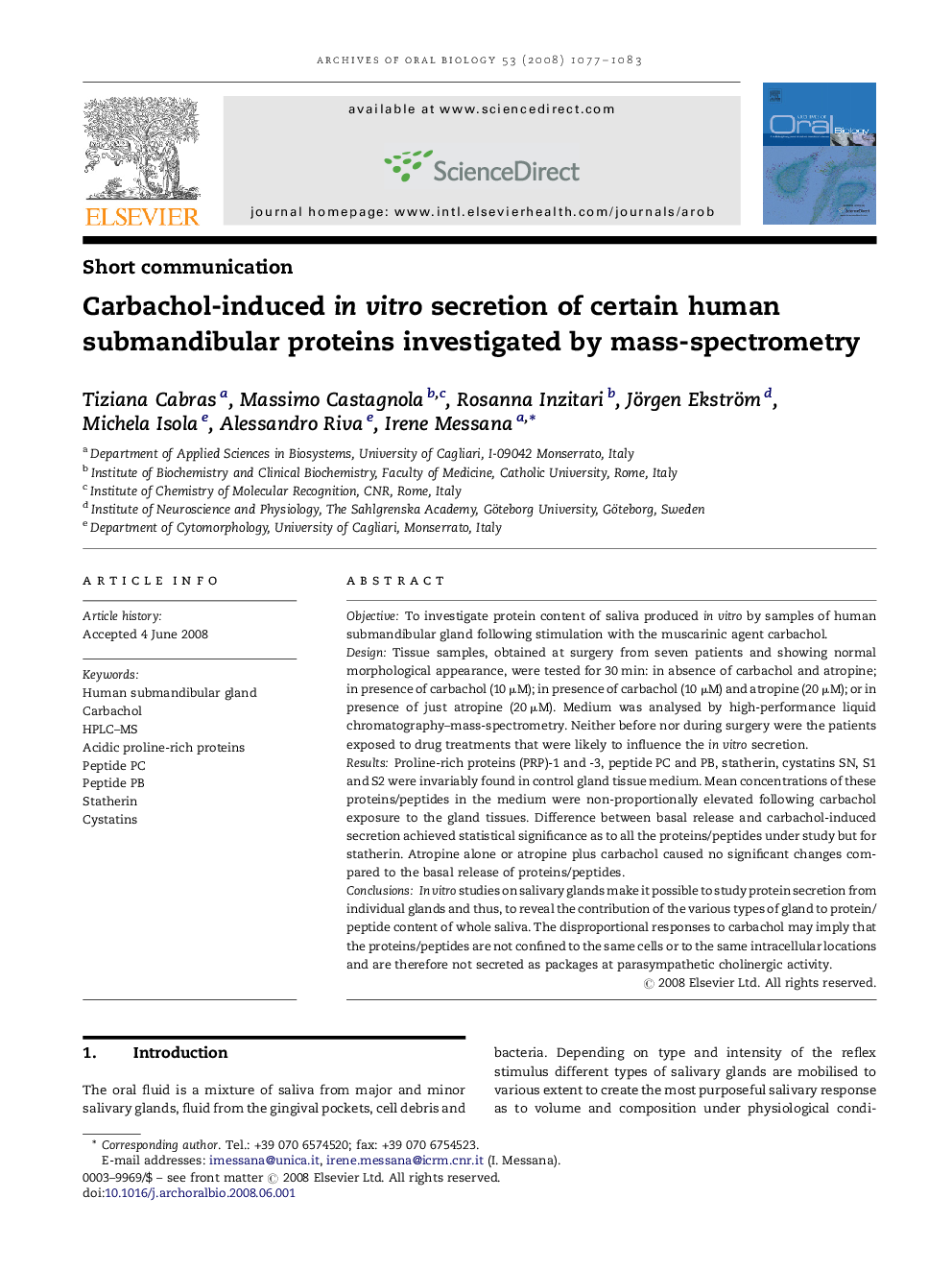| Article ID | Journal | Published Year | Pages | File Type |
|---|---|---|---|---|
| 3121401 | Archives of Oral Biology | 2008 | 7 Pages |
ObjectiveTo investigate protein content of saliva produced in vitro by samples of human submandibular gland following stimulation with the muscarinic agent carbachol.DesignTissue samples, obtained at surgery from seven patients and showing normal morphological appearance, were tested for 30 min: in absence of carbachol and atropine; in presence of carbachol (10 μM); in presence of carbachol (10 μM) and atropine (20 μM); or in presence of just atropine (20 μM). Medium was analysed by high-performance liquid chromatography–mass-spectrometry. Neither before nor during surgery were the patients exposed to drug treatments that were likely to influence the in vitro secretion.ResultsProline-rich proteins (PRP)-1 and -3, peptide PC and PB, statherin, cystatins SN, S1 and S2 were invariably found in control gland tissue medium. Mean concentrations of these proteins/peptides in the medium were non-proportionally elevated following carbachol exposure to the gland tissues. Difference between basal release and carbachol-induced secretion achieved statistical significance as to all the proteins/peptides under study but for statherin. Atropine alone or atropine plus carbachol caused no significant changes compared to the basal release of proteins/peptides.ConclusionsIn vitro studies on salivary glands make it possible to study protein secretion from individual glands and thus, to reveal the contribution of the various types of gland to protein/peptide content of whole saliva. The disproportional responses to carbachol may imply that the proteins/peptides are not confined to the same cells or to the same intracellular locations and are therefore not secreted as packages at parasympathetic cholinergic activity.
